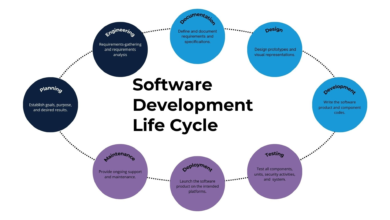Typical Commission Rates for Selling a Business

Understanding Business Broker Fees
When you decide to sell your business, you’ll likely work with a business broker. They’re the pros who help guide the whole process, from getting your business ready for the market to finding the right buyer and closing the deal. Think of them as your real estate agent, but for your company. Their main job is to get you the best possible price and terms for your business.
The Role of a Business Broker
A business broker does a lot more than just list your company. They’ll help you figure out what your business is actually worth, which isn’t always straightforward. They also put together marketing materials, screen potential buyers to make sure they’re serious and have the means to buy, and they’re there to help negotiate the sale terms. Basically, they handle a lot of the heavy lifting so you can keep running your business.
Common Fee Structures
Brokers usually get paid through commissions, meaning they earn a percentage of the final sale price. But how that percentage is calculated can vary. Some might charge a flat fee, while others use a sliding scale. It’s important to know which structure your broker uses right from the start.
- Percentage of Sale Price: This is the most common. The broker gets a cut of whatever your business sells for.
- Retainer Fee: Some brokers charge an upfront fee to cover initial costs and their time.
- Combination: Many brokers use a mix, perhaps a smaller retainer plus a commission.
Factors Influencing Broker Commissions
What a broker charges isn’t set in stone. It can depend on a few things. The size of your business is a big one; selling a small corner store is different from selling a large manufacturing plant. The complexity of the deal also plays a part. If there are a lot of assets or complicated financing involved, it might affect the commission. And, of course, the broker’s own experience and reputation can influence their rates. Some brokers might also charge differently based on the industry your business is in.
It’s really about finding someone you trust to represent your business well. Their fee is an investment in getting the sale done right and for the best possible outcome.
Commission Scales for Business Sales
When you’re looking to sell your business, understanding how brokers get paid is a big deal. It’s not just one flat rate for everyone. There are a few main ways these commission scales work, and knowing them can help you figure out what to expect.
Sliding Scale Commission Models
This is probably the most common setup. Think of it like a tiered system. The percentage you pay the broker goes down as the sale price goes up. So, for the first chunk of the sale price, you might pay a higher percentage, and then for amounts above that, the percentage drops. It makes sense because selling a small business for $500,000 takes a lot of work, but selling a multi-million dollar company, while complex, might not require proportionally more effort for that extra million. This structure rewards brokers for getting the deal done, but also keeps it fair for sellers with larger businesses. It’s a way to balance the effort and the outcome.
Flat Fee Arrangements
Less common, but you might see this, especially with larger deals or for specific merger and acquisition services. Instead of a percentage, the broker charges a set fee. This fee is agreed upon upfront. It can be appealing because you know exactly what you’ll pay, no matter the final sale price. However, it can also mean the broker might not be as motivated to push for the absolute highest price if they’ve already hit their target fee. It’s a trade-off, really.
Hybrid Fee Structures
Sometimes, brokers mix things up. You might see a combination of a smaller upfront fee or retainer, plus a lower commission rate once the sale is complete. Or, they might have a base fee plus a sliding scale. This approach tries to cover the broker’s costs and time while still incentivizing them to get a good sale price. It’s a bit of a middle ground, aiming for fairness for both parties involved in the transaction.
Average Broker Commissions by Deal Size
When you’re looking to sell your business, the size of the deal often plays a big role in how much a broker will charge. It’s not a one-size-fits-all situation, and brokers usually adjust their fees based on the sale price. This makes sense because selling a smaller business often takes just as much work, if not more, than selling a larger one, but the payout is obviously different.
Small Business Sale Commissions
For smaller businesses, typically those selling for under $1 million, commission rates tend to be on the higher side. This is often because brokers need to cover their overhead and make a reasonable profit on deals that might not have a huge dollar value. You might see rates anywhere from 8% to 12%, sometimes even a bit more, often with a minimum fee attached. This minimum fee ensures that the broker’s time and effort are compensated even if the final sale price is lower than anticipated.
Mid-Market Business Sale Commissions
As the sale price increases into the mid-market range, usually between $1 million and $10 million, the commission rates start to come down. This is where those sliding scale models really kick in. A common structure might be 10% on the first million, then maybe 8% on the next million, and so on. This tiered approach rewards brokers for bringing larger deals to fruition while still providing them with a solid income.
Large Enterprise Sale Commissions
For really big deals, the kind involving large enterprises or significant companies, the commission percentages drop even further. Think rates like 5% or even less on the total sale price. The sheer volume of the transaction means that even a smaller percentage yields a substantial fee for the broker. It’s all about proportionality; the broker’s effort might be similar in terms of finding buyers and negotiating, but the financial outcome is vastly different.
Here’s a general idea of how rates might look:
| Sale Price Range | Typical Commission Rate |
| Under $1 Million | 8% – 12% (often with a minimum fee) |
| $1 Million – $5 Million | 5% – 10% |
| $5 Million – $20 Million | 3% – 7% |
| Over $20 Million | 1% – 5% |
It’s important to remember that these are just averages. The specific structure and rate will depend heavily on the broker, the industry, the complexity of the sale, and your negotiation skills. Always get a clear breakdown of the fee structure before signing any agreement.
Additional Costs Beyond Commissions
Selling your business involves more than just the broker’s commission. Think of it like selling a house – there are other costs that pop up along the way. It’s good to be aware of these so you’re not caught off guard.
Marketing and Advertising Expenses
Brokers often charge for marketing your business. This can include creating a professional listing, advertising on various platforms, and developing marketing materials. Some brokers bundle this into their fee, while others itemize it. You might see costs for things like:
- Creating a detailed business profile or “CIM” (Confidential Information Memorandum).
- Listing your business on industry-specific websites or general business-for-sale sites.
- Direct mail campaigns or email marketing to potential buyers.
- Professional photography or videography of your business assets.
Due Diligence and Legal Fees
Once you have a buyer, the due diligence process begins. This is where the buyer thoroughly investigates your business. Lawyers are almost always involved to draft and review sale agreements, handle title transfers, and ensure everything is legally sound. These fees can add up, and they are separate from the broker’s cut. You’ll likely need to budget for:
- Legal review of the purchase agreement.
- Costs associated with transferring ownership of assets, licenses, and permits.
- Accountant fees for financial statement preparation or review.
Success Fees and Retainers
Some brokers work on a retainer basis, meaning you pay them a fee upfront or monthly, regardless of whether the sale closes. This is more common for larger or more complex deals. Others might have a “success fee” structure, which is essentially a bonus paid only if the sale is completed. It’s important to clarify these terms in your brokerage agreement.
Be sure to ask your broker exactly what is covered by their commission and what costs you might incur separately. Getting this in writing upfront can save a lot of headaches later.
Finding the Right Business Broker in Las Vegas
Finding the right business broker in Las Vegas is a big step when you’re ready to sell your company. It’s not just about picking the first name you see; you want someone who really gets the local market and your specific business. A good broker acts as your guide, handling the tough conversations and making sure you get a fair deal.
What to Look For in a Business Broker
When you’re searching for a business broker las vegas, keep a few things in mind. Experience is key, especially experience selling businesses similar to yours in size and industry. Look for someone with a solid track record and good references. Do they have a strong network of potential buyers? That’s a big plus. Also, consider their communication style. You want someone who keeps you informed without overwhelming you with details.
- Industry Specialization: Does the broker know your industry?
- Local Market Knowledge: Are they familiar with the Las Vegas business scene?
- Reputation and References: What do past clients say?
- Buyer Network: Do they have a list of interested buyers?
- Communication Style: Are they responsive and clear?
Interviewing Potential Brokers
Once you have a shortlist, schedule interviews. Treat this like hiring a key employee. Ask about their process for valuing businesses, how they market them, and their typical timeline for a sale. Don’t be afraid to ask tough questions about their success rate and how they handle difficult negotiations. It’s also a good time to ask about their fee structure to avoid surprises later.
It’s important to feel comfortable with your broker. You’ll be working closely together, so trust and rapport are important.
Negotiating Brokerage Agreements
Before signing anything, carefully review the brokerage agreement. Pay close attention to the commission rate, the listing period, and what services are included. Some brokers might offer different fee structures, like a retainer plus commission, or a tiered commission. Make sure you understand exactly what you’re agreeing to. Don’t hesitate to negotiate terms if something doesn’t feel right. The goal is to find a partner who is motivated to sell your business at the best possible price.
Maximizing Your Business Sale Value
Selling your business is a big deal, and getting the most money for it takes some serious thought. It’s not just about finding a buyer; it’s about making sure your business looks as good as possible on paper and in person. Proper preparation can significantly impact the final sale price.
Preparing Your Business for Sale
Getting your business ready for the market involves a few key steps. Think of it like getting ready for a job interview – you want to present your best self. This means tidying up your financial records, making sure everything is organized and easy for a potential buyer to understand. You’ll want to have your profit and loss statements, balance sheets, and tax returns readily available, ideally for the last three to five years. Also, consider any operational improvements you can make. Are there processes that could be streamlined? Is the physical space clean and inviting? Addressing these things beforehand can make a big difference.
The Importance of Professional Representation
While you might be tempted to handle the sale yourself to save on commissions, having a good business broker or M&A advisor can be a game-changer. These professionals know the market, have a network of potential buyers, and are skilled negotiators. They can help you avoid common pitfalls and often secure a higher sale price than you might achieve on your own. They handle the heavy lifting, from marketing your business to screening buyers and managing the offer process, letting you focus on running your business until the deal closes.
Understanding Buyer Negotiations
Negotiations are a big part of selling a business. Buyers will want to get the best deal possible, and you’ll want to get the most for your hard work. It’s important to be prepared for this. Know your bottom line, but also be willing to be flexible. Sometimes, agreeing on terms that aren’t purely financial, like a transition period where you help the new owner get up to speed, can help close the deal. Having a broker can be really helpful here, as they can act as a buffer and handle the back-and-forth, keeping emotions out of the equation. They can also help you understand what’s standard in negotiations and what might be a red flag.
Wrapping It Up
So, when you’re looking at selling your business, remember that broker fees aren’t set in stone. They can change based on the deal size and what the broker offers. Most of the time, you’ll see rates somewhere between 5% and 10%, but it’s not uncommon for larger sales to have lower percentages. It’s always a good idea to talk to a few different brokers, compare their fee structures, and figure out what works best for your specific situation. Getting a good deal on your sale is important, and understanding the commission is a big part of that.
Frequently Asked Questions
How do business brokers get paid?
Most brokers charge a percentage of the final sale price. This is often called a commission. Think of it like a real estate agent’s fee, but for selling your whole business.
What’s a typical commission rate?
The usual rate is somewhere between 5% and 10%. However, this can change depending on how much the business sells for. Bigger sales might have a lower percentage.
Do brokers use a sliding scale for their fees?
Yes, many brokers use a ‘sliding scale.’ This means they take a bigger cut of the first part of the sale price and a smaller cut of the rest. It’s like a tiered system.
Are there other costs besides the commission?
Besides the main commission, you might have to pay for things like advertising your business, legal help, and maybe a small upfront fee to the broker to get started.
What affects how much a broker charges?
The size of your business is a big factor. Selling a small corner store usually has different commission rates than selling a large factory. Also, how hard the broker has to work matters.
How should I pick a business broker?
It’s smart to talk to a few different brokers. Ask them about their fees, how they plan to sell your business, and what experience they have. Make sure you feel comfortable with them.





